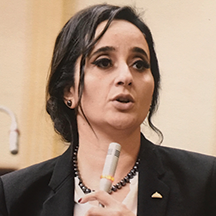The green energy transition: employment pathways for MENA
The potential employment impacts of green and renewable energy in the Middle East and North Africa are multifaceted and promising. As this column explains, embracing renewable energy technologies presents an opportunity for the region to diversify its economy, mitigate the possible negative impacts of digitalisation on existing jobs, reduce its carbon footprint and create significant levels of employment across a variety of sectors. Green energy is not just an environmental imperative but an economic necessity.
Food security and child malnutrition in Africa
There is a complex relationship between climate change, food security and children’s nutritional status. This column outlines the research evidence, focusing in particular on the experience of African countries and poorer communities within them.
Climate change: the impact on child malnutrition in the Nile basin
There are complex interactions between climate change, food security and children’s nutritional status. This column summarises new research on these relationships in the context of Egypt, Ethiopia and Uganda, including the role of socio-economic factors in shaping child health, as well as possible routes and biological aspects that could explain their impacts.


